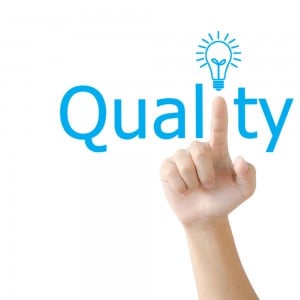

Many organizations are operating in losses due to poor quality of their offerings in the modern consumer driven world. Quality was seen as a way to combat the competition. Total Quality Management (TQM) is the art of managing the entire process to achieve excellence.
Total Quality Management and Continuous Improvement
TQM in an organization is defined by and supports the constant attainment of customer satisfaction through an integrated system of tools, techniques and training. TQM focuses on continuous improvement of organizational processes resulting in high quality products and services. The ideal goal of TQM is do things right the first time and every time. The customer is the ultimate judge of quality.
Quality cannot be improved without significant losses in productivity. It is imperative that the top management provide leadership and support for quality initiatives. Quality goals are moving targets and improving quality requires establishment of effective metrics. The three aspects of TQM are counting, customers and culture. Customer’s impression of quality begins from the initial contact with the company and continues throughout the life of the product. All departments of the organization must strive to improve the quality of their operations. Value based approach relies on service dimensions like reliability, responsiveness, assurance, empathy and tangibles.
TQM’s objective is continuous improvement of principles like customer focus, process improvement and total involvement. Elements of TQM speak about leadership, education and training, support structure, communications, rewards and recognition, and measurement or metrics. The critical success factors hinges on areas of managerial action and planning that must be practiced to achieve quality management in a business unit. The critical success factors are very essential for TQM and if it fails, the process gets terminated. Performance evaluation is based on quality, top management’s responsibility for quality performance, acceptance of responsibility for quality by major department heads, consideration of quality as first priority, discussing quality related issues in meetings and degree of comprehensiveness of quality plan. The ability of an organization to adapt to change in the business environment to capture best practices and achieve and maintain competitive performance is also critical for TQM to be successful. Input is company’s total quality effort and output is the level of performance of the plant.
“Quality is a lovable journey and not a destination”

